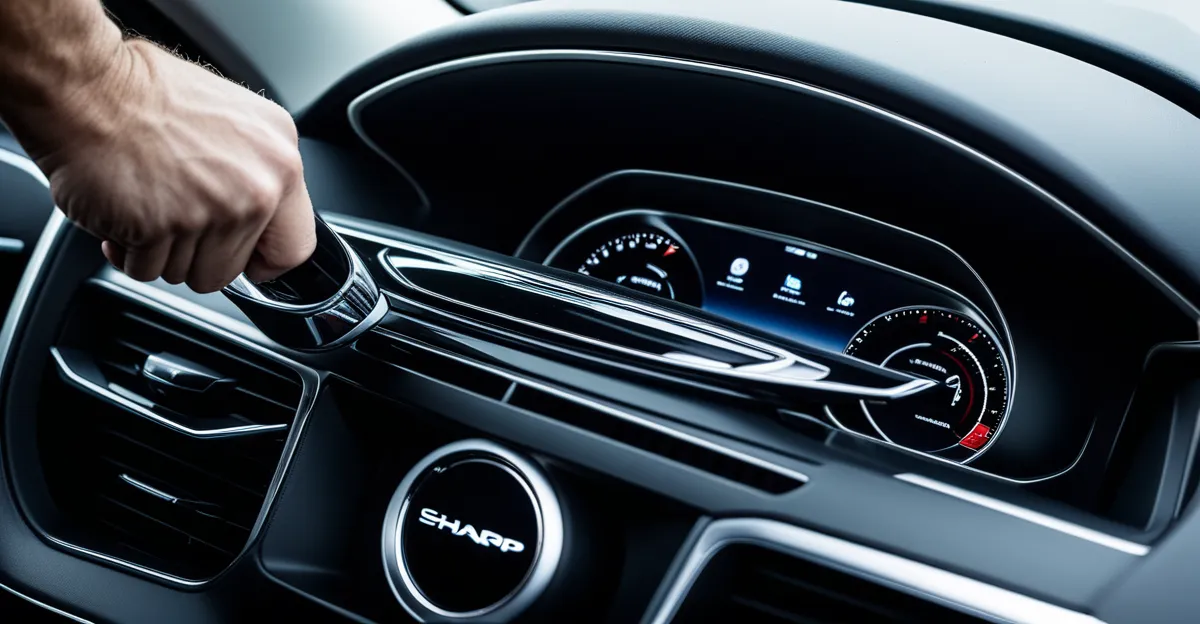Overview of Recent Automotive Innovations in the UK
Recent automotive innovations UK have significantly shaped the country’s car industry, emphasizing both style and function. Current UK automotive design trends focus on integrating cutting-edge technology with sustainability. Innovations span across materials, electrification, autonomy, and aesthetics, reflecting a comprehensive approach to modern vehicle development.
Advanced materials, such as lightweight alloys and carbon fibre, reduce vehicle weight, enhancing efficiency without compromising strength. The electrification wave sees a surge in electric vehicles UK, supported by improvements in battery technology and charging networks. Hybrid models are also prominent, blending performance with eco-friendliness.
Additional reading : What role does innovation play in the UK automotive industry’s success?
Autonomous features continue to evolve, with smart driving systems incorporating AI and sophisticated sensors increasing safety and convenience. Collaboration between car manufacturers and UK car technology firms drives these advancements, ensuring vehicles meet competitive global standards.
Aesthetic elements have not been overlooked; current trends lean toward sleek, minimalist designs and ergonomic interiors aimed at user comfort. This holistic approach underlines the importance of these innovations for both consumers seeking better experiences and the UK automotive industry’s future competitiveness.
Also to read : What role does innovation play in the UK automotive industry’s success?
Advanced Materials and Manufacturing Techniques
New lightweight materials like carbon fibre and advanced alloys are revolutionizing automotive manufacturing UK. These materials reduce vehicle weight significantly while preserving strength and safety. Reduced weight improves fuel efficiency and driving dynamics, directly benefiting consumers through lower running costs and enhanced performance.
Sustainable manufacturing approaches are increasingly adopted, minimizing environmental impact during production. Methods such as energy-efficient processes and waste reduction are becoming standard in UK automotive plants, aligning with global green targets.
Advanced composites provide the dual advantage of durability and lightness. Their integration into vehicle frames and body panels allows for more aerodynamic designs, contributing further to energy savings. The use of these materials requires sophisticated manufacturing techniques, including precision moulding and automated assembly, highlighting the cutting-edge capabilities of the UK automotive sector.
The combination of innovative materials and eco-conscious manufacturing supports both industry competitiveness and consumer demand for sustainable, high-performing vehicles. This synergy underpins many recent automotive innovations UK, confirming the UK’s leadership in this technical area.
Electric and Hybrid Vehicle Technologies
UK automotive design trends prominently feature advancements in electric vehicles UK and hybrid models. The rise in EV innovation is driven by breakthroughs in battery technology, offering greater range and faster charging times. This progress answers the common query: how do electric vehicles maintain efficiency? Enhanced energy density and thermal management in modern batteries provide sustained power with improved longevity.
Charging infrastructure expansion across the UK supports practical everyday use, addressing consumer concerns about accessibility. Hybrid cars UK blend combustion engines with electric motors, offering flexibility and lower emissions, ideal for urban and rural environments alike. This technology strikes a balance between traditional performance and ecological responsibility.
Notable UK-made electric and hybrid models exemplify these trends, integrating cutting-edge UK car technology for optimized performance and user experience. The sector’s growth answers “what innovations define upcoming UK vehicles?” with a strong focus on reduced carbon footprints and enhanced drivability. Collectively, these advancements position the UK automotive industry at the forefront of global sustainability and innovation efforts.
Autonomous and Smart Driving Features
The rise of autonomous vehicles UK marks a transformative shift in the automotive landscape, driven by advances in UK car technology. These vehicles rely on sophisticated driver assist systems that combine AI, machine learning, and sensor fusion to enhance safety and user experience. How do these systems work? They continuously monitor the vehicle’s surroundings using radar, cameras, and lidar to predict and react to potential hazards in real time.
Collaboration between automakers and tech companies in the UK has accelerated the integration of smart driving features. These partnerships focus on refining algorithms and improving hardware to increase reliability and performance. Notable innovations include adaptive cruise control, lane-keeping assist, and automated emergency braking.
This evolution in autonomous vehicles UK not only promises accident reduction but also enhances comfort by reducing driver fatigue. The UK is positioning itself at the forefront by developing practical and scalable autonomous solutions, reflecting a significant segment of recent automotive innovations UK. These developments underline the critical role of cutting-edge UK car technology in shaping safer, more efficient roadways.
Modern Aesthetic and Functional Design Trends
Exploring UK car design trends reveals a clear shift toward sleek, minimalist aesthetics combined with highly functional interiors. These automotive aesthetics UK emphasize clean lines and aerodynamic forms, contributing not only to vehicle appeal but also to improved efficiency. Manufacturers prioritize ergonomics, ensuring driver and passenger comfort through intuitive layouts and high-quality materials.
Innovative interiors focus on technology integration and user experience. Touchscreen interfaces, customizable ambient lighting, and modular seating arrangements exemplify this user-centered approach. How do UK designers achieve such innovation? By blending traditional craftsmanship with cutting-edge UK car technology, they create interiors that feel futuristic yet practical.
Flagship models and concept cars also showcase these trends, pushing boundaries with bold shapes and sustainable materials. These advancements reflect a balanced commitment to form and function, addressing consumer desires for style without sacrificing comfort or usability.
In addition to aesthetic appeal, these UK car design trends support the industry’s broader goals by enhancing vehicle desirability and encouraging adoption of newer, eco-friendly models. This convergence of design innovation and practicality confirms the continued leadership of the UK automotive sector.





